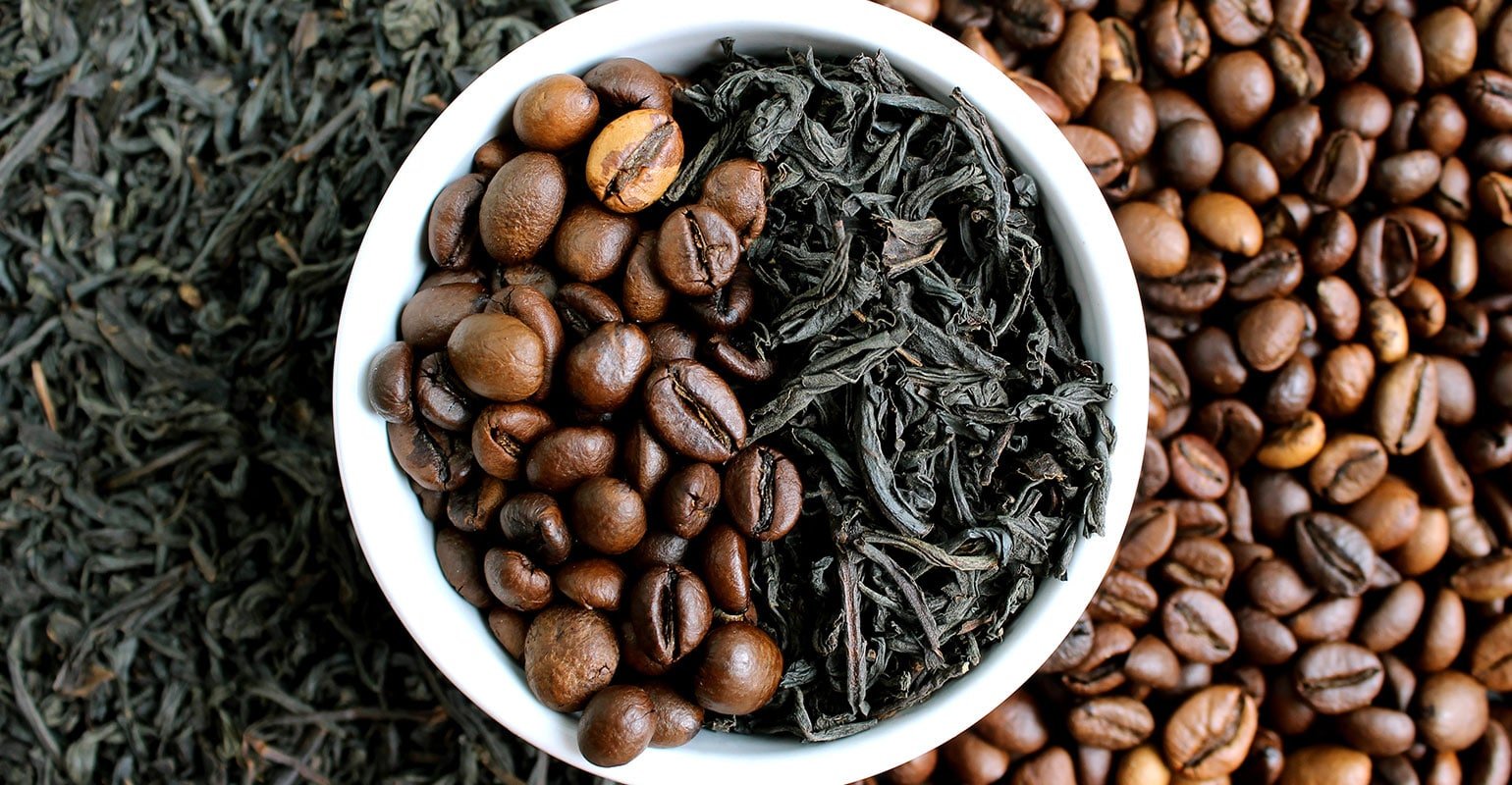
Table of Contents
Whether you’re enjoying a cup of tea or reaching for your morning coffee, both beverages offer a dose of caffeine — a natural stimulant that’s beloved around the globe. While tea and coffee both come from different plants, they’re equally part of the daily routines of millions. But how do they compare when it comes to caffeine content?
This guide explores how much caffeine is in tea vs coffee, and how the brewing process, tea type, and preparation can influence your intake.
Why Is Caffeine a Concern?
Caffeine is a widely consumed stimulant that affects the central nervous system. It boosts alertness, reduces fatigue, and may improve concentration and mood. Found in over 60 plant species, including the Camellia sinensis tea plant and coffee beans, it’s commonly consumed in tea, coffee, chocolate, and energy drinks.
Health authorities recommend consuming caffeine in moderate amounts — up to 400 mg per day for most healthy adults, or 200 mg per dose. Pregnant women are advised to limit their intake to no more than 200 mg daily due to possible risks such as increased heart rate or lower birth weight.
While caffeine offers benefits, too much caffeine can lead to restlessness, disrupted sleep, headaches, and a fast heartbeat. People on certain medications or with underlying conditions like heart disease should be cautious about how much they consume.
Summary:
Caffeine is a natural stimulant that supports alertness and energy, but excess intake — especially over 400 mg daily — can negatively affect the nervous system and sleep.
Caffeine Content Varies by Type and Brewing Process
The caffeine in tea vs coffee depends on the specific type, origin, and how the drink is prepared. While tea leaves contain more caffeine by weight than coffee beans, the average cup of coffee uses more grounds and hotter water, resulting in a stronger brew.
Caffeine in Tea Varieties
All true teas — including green tea, black tea, white tea, and oolong tea — come from the same plant: Camellia sinensis. The differences in caffeine levels are primarily due to processing and brewing time.
Here’s a general guide to the caffeine content per 237ml cup:
- Black tea: 47–90 mg
- Green tea: 20–45 mg
- White tea: 6–60 mg
- Oolong tea: 30–50 mg
- Matcha green tea: ~35 mg per 1g serving (½ tsp)
- Yerba mate: ~85 mg
- Herbal tea: 0 mg (caffeine-free)
Black and oolong teas undergo more oxidation, which may affect their flavour but not their caffeine content significantly. Matcha, a powdered high caffeine tea made from green tea leaves, stands out for its strong concentration.
Herbal teas such as chamomile, peppermint, or rooibos are not derived from the tea plant and are naturally caffeine-free — perfect for those stopping caffeine or avoiding it altogether.
The Impact of Tea Brewing
Brewing time and water temperature play key roles in how much caffeine ends up in your cup of tea. Longer brewing times and hotter water extract more caffeine from the leaves.
For example, steeping a black tea bag for 1 minute may produce 40 mg of caffeine, while 3 minutes can result in 60+ mg. Matcha tea, on the other hand, is whisked directly into the water, meaning the body absorbs all of the tea leaf — resulting in higher caffeine compared to steeped teas.
Summary:
The amount of caffeine in your cup of tea depends on the type of tea and how it’s brewed. Black and matcha teas are among the highest in caffeine, while herbal teas contain none.
Caffeine in Coffee Varieties
Coffee generally delivers more caffeine than tea due to both its brewing process and the amount of grounds used. The average cup of coffee contains more caffeine than the average cup of tea — regardless of the roast level.
Caffeine in coffee types (per 237ml cup):
- Brewed coffee: 95 mg
- Instant coffee: 60–80 mg
- Cold brew: 100–200 mg (depending on concentration)
- Espresso (30ml shot): ~58 mg
- Latte/cappuccino (double shot): ~116 mg
- Decaffeinated coffee: 0–3 mg
Contrary to popular belief, dark roast coffee doesn’t contain more caffeine than light roast. While roasting affects flavour, the caffeine content remains relatively stable. However, because dark roasts are less dense, people often use more grounds by volume — which can lead to slightly more caffeine.
Cold brew coffee uses more coffee and has a longer steeping time (8–24 hours), making it one of the most caffeinated beverages you can drink.
The Impact of Coffee Brewing
As with tea, hotter water and longer brew times increase caffeine extraction. Most hot coffee is brewed at around 90–96°C. Cold brew uses time instead of temperature, soaking grounds in cold water for extended periods.
Espresso, though served in small volumes, is a highly concentrated form of caffeine and often forms the base for milk-based drinks like flat whites or lattes.
Summary:
Coffee, particularly espresso and cold brew, tends to have more caffeine per serving than tea. Brew strength, temperature, and portion size all influence the final amount.
Which One Should You Choose?
Choosing between coffee and tea comes down to your personal preference, tolerance for caffeine, and how your body reacts to it.
- If you want a milder energy boost, green or black tea may be more suitable than coffee.
- For maximum alertness, coffee and espresso deliver the highest caffeine doses.
- Looking to avoid caffeine altogether? Herbal teas and decaffeinated tea or coffee are excellent options.
- Pregnant women or people with heart disease should limit intake and opt for lower-caffeine or caffeine-free alternatives.
It’s also important to consider timing — caffeine affects the body within 20–60 minutes of consumption and may disrupt sleep if consumed late in the day.
Daily limits:
- General population: Max 400 mg/day
- Pregnant or breastfeeding women: Max 200 mg/day
- One cup of brewed coffee = ~95 mg
- One cup of black tea = ~47 mg
Summary:
Pick a drink that suits your needs — coffee for a stronger kick, tea for a gentler lift. Be mindful of portion sizes, brewing methods, and total daily intake.
Final Thoughts
Whether it’s tea or coffee, understanding the caffeine content of your favourite drink helps you make informed decisions. Tea offers more variety — from high caffeine matcha to caffeine-free herbals — while coffee brings bold flavour and a stronger stimulant effect.
Regardless of your preference, keeping your daily caffeine under 400 mg helps you enjoy the benefits without the side effects. Brew smart, sip mindfully, and enjoy your perfect cup.




